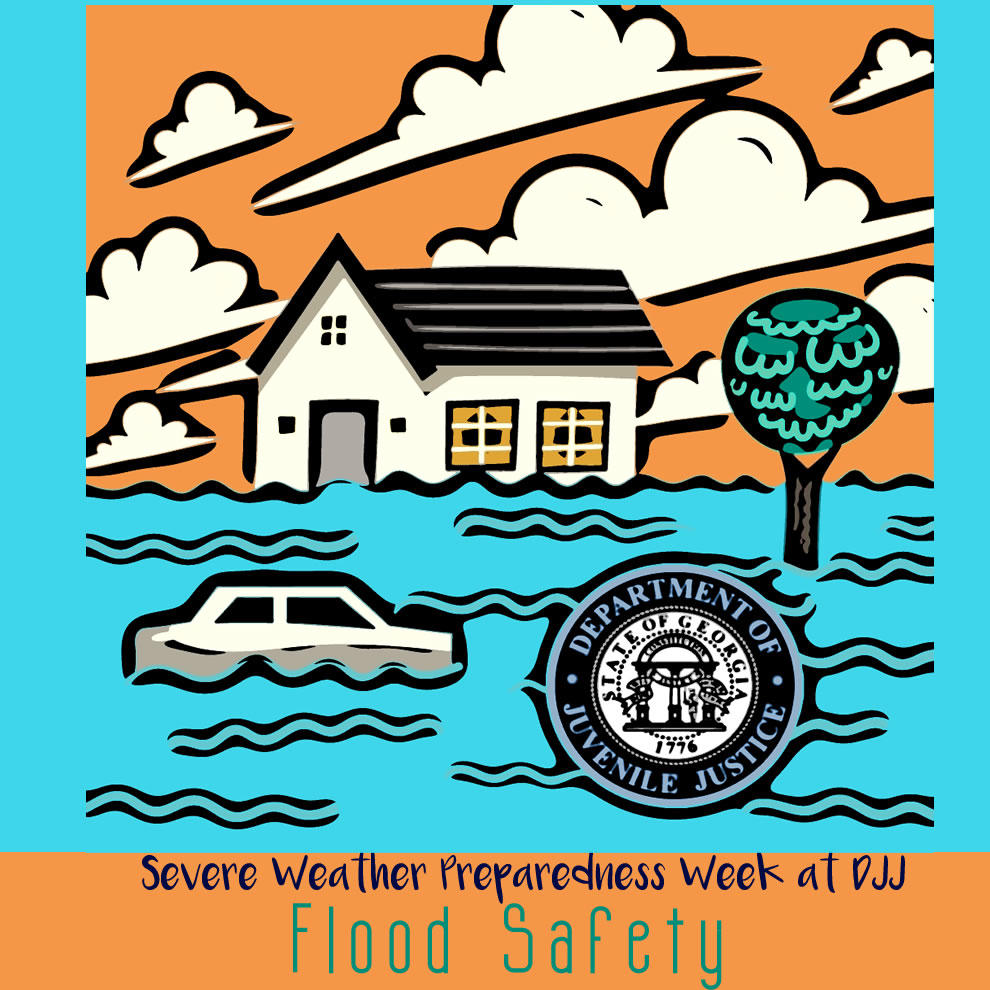
February 09, 2018
Severe Weather Preparedness Week: Flood Safety

February 5th through 9th is the timetable Governor Nathan Deal has declared as ‘Severe Weather Preparedness Week’ this year to promote the importance of emergency awareness and to encourage all Georgia citizens to be ready for all severe weather-related events or other major emergencies.
As in previous years, the State of Georgia has launched the ‘Ready Georgia’ campaign again this February to help provide all Georgia citizens with the tools and safety measures needed to prepare for casualty events and climate-related dangers and disasters. The ‘Ready Georgia’ app will show you how to custom-make three crucial safety preps for your family:
1. "Be informed" about potential threats and protective measures for emergencies.
2. "Make a plan" to communicate and reconnect with your family if you get separated.
3. "Build a kit" with enough emergency supplies to supply you and your family for at least 72 self-sufficient hours after a disaster.
Previous severe weather events in Georgia have caused injuries and fatalities and resulted in substantial property damage, making it critical that Georgia families review their home preparedness plans and self-rescue procedures this week. It’s time to renew your familiarity and confidence in some basic measures for disaster survival away from home or for sheltering in place.
Next, Commissioner Avery D. Niles urges all DJJ staff to participate in Georgia’s Severe Weather Preparedness program, while launching the public education and preparation program schedule that begins Monday, February 5th with Family Preparedness Day. See the ‘Severe Weather Preparedness Week’ Daily Safety Event Calendar for details.

‘Severe Weather Preparedness Week’ at DJJ
Daily Safety Event Calendar - February 5-9, 2018
Commissioner Avery D. Niles is personally committed to help protect the DJJ Mission and dedicated to the success of Georgia’s at-risk youth through emergency awareness and agency readiness for all severe weather events and other major crises.
The Georgia Department of Juvenile Justice expresses its appreciation to GEMA, FEMA and the Red Cross for sharing lifesaving information for this Severe Weather Preparedness campaign.

Daily Safety Event Calendar – Friday, February 9
‘Severe Weather Preparedness Week’ at DJJ
Friday, Feb. 9 – Flood Safety – Remember, “turn around, don't drown”. Flooding kills more people than any other weather hazard!
How to protect yourself and family from Flooding
The majority of deaths from flooding occur when cars stall while driving through flooded areas. Nearly half of all flood fatalities are vehicle-related.
Know the difference between a Flash Flood Watch and Flash Flood Warning:
- A Flood Watch or Flash Flood Watch means that conditions have been detected that could lead to flooding in a certain area.
- A River Flood Warning or Flash Flood Warning means that flooding is imminent and you should take action immediately.
- If flooding occurs, move to higher ground. Leave areas subject to flooding such as canyons, valleys and ravines.
- Never try to cross flooded roadways. Road beds may be washed out due to flooding. Avoid areas already flooding, especially if the water is fast flowing. Do not attempt to cross flowing streams.
- If your vehicle is suddenly caught in rising water, leave it immediately and find higher ground. Remember, “turn around, don't drown”.
- Be especially cautious at night when it’s harder to see and detect flood dangers.
Know your risk. Take action.
Flooding usually occurs in two categories: Flash flooding and river flooding. Both can cause death, injury and property destruction. Areas most prone to floods include low-lying areas, mountainous streams and rivers, and creeks and culverts.
Flash floods are usually caused by slow moving thunderstorms and may occur within 6 continuous hours of heavy rainfall over the same terrain, becoming more life threatening as a result.
River flooding is caused by a gradual increase in the water level of a river or creek. These floods usually occur seasonally with heavy rainfall from tropical weather systems. Being prepared and knowing how to react quickly can determine flood victim survival.
Flooding preparation:
- Identify essential items to take during an evacuation
- Copy important documents. Seal them in a watertight container.
- List emergency contact numbers in case local or area roads are flooded
Supply Checklist for Severe Weather emergencies:
- Clean water stockpile, storing at least 3 gallons per person - per day
- 3-day non-perishable family food supply
- Manual can opener, flashlights, batteries, and NOAA alert radio
- Fully stocked First Aid kit
- Preparations for sustained cold weather emergency without public utilities
Fire & Medical emergency preparation:
- Identify two entry points out of your home or office
- Establish a family meeting place or contact point for after your evacuation
- Pack First Aid kit with emergency numbers posted
- First Aid training
Find more information about the dangers of flooding at:
The dangers of severe weather know no boundaries and can affect every individual. A few simple steps of preparation now to take the right action someday, could help save lives anywhere.